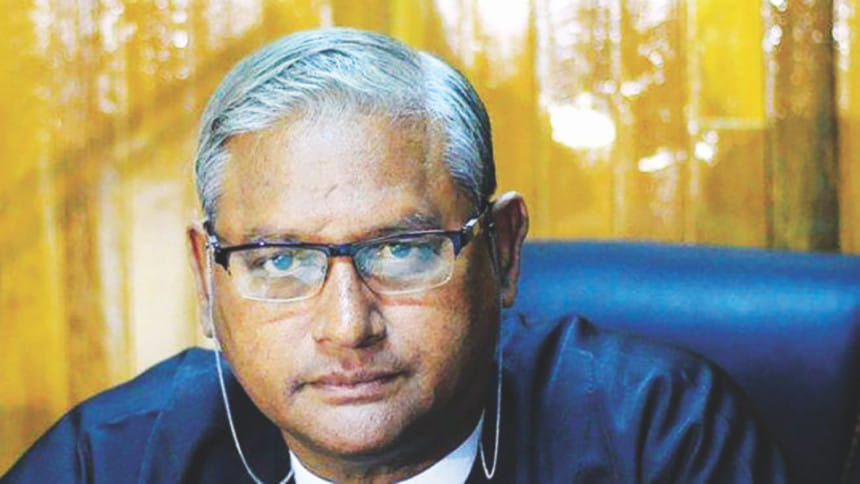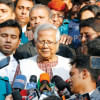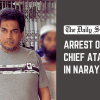Nobel laureate can learn from a taxi driver

An assassin shot him in the head at close range as he was about to leave Yangon airport in his family car. He fell to the ground, bleeding.
This was how U Ko Ni, a lawyer and member of the ruling National League for Democracy in Myanmar, was killed on January 29 this year.
"During the shooting, he was holding his grandchild," said a witness.
Ko Ni was also a prominent human rights campaigner and legal adviser to Aung San Suu Kyi. But he needs to be remembered for many more reasons.
The man was credited with finding the legal and constitutional loopholes that allowed the formation of the State Counsellor's role and enabled Suu Kyi to become the de facto head of government last year.
Born near Katha in Saigang Division in 1953, Ko Ni was the son of a Muslim man and a Burmese woman. In the early 1900s, his father came to Burma from India through his work with the British-Indian army.
Now Myanmar, Burma back then was considered part of the British-Indian colonial empire. His mother was a Buddhist, and daughter of a Muslim man and a Buddhist woman.
Being a son of an immigrant and a Muslim is not a very good combination in Myanmar.
Although well respected in the political circle, he was not nominated as a candidate for the 2015 general elections. The NLD did not pick any Muslim candidates, apparently to please the increasingly vocal nationalist groups.
Ko Ni was often the target of nationalists because of his religion. In February 2014, radical monks targeted a public discussion by Ko Ni and three others, saying Muslims should not be allowed to speak publicly because they are not "nationals".
"A lot of people hate us because we have different religious beliefs, so I think that might be why it happened to him, but I don't know the reason," his daughter, Yin Nwe Khine, once said.
But the purpose of this piece is not to examine the possible motive behind the killing of a revered lawyer or the life's journey of an influential politician who is from the minority community in the Buddhist-majority Myanmar. It does not aim to advocate the rights of Muslims or immigrants either.
This is actually about something else -- a forgotten sub-plot.
As the killer of Ko Ni tried to run away, he shot dead a taxi driver, U Ne Win, who had tried to stop him. Other taxi drivers detained the gunman until police arrived and arrested him.
U Ne was an ordinary Burmese who didn't need to know whether the victim was a Muslim, Hindu, Buddhist or atheist and what was the colour of his skin, eyes or hair.
He acted against a crime, the killing of a 65-year-old who was holding his grandchild, though he could have very well ignored it and saved own life.
This simple man did what the Nobel Peace prize winner Suu Kyi and her government should be doing right now. She needs to go after the killers and stop the killing of innocents -- it doesn't matter if the victims are Rohingya, Kachin or Bamar.
Daw Suu, as she is known, did not even visit the trouble-torn areas or speak out in defence of the minorities being persecuted in Rakhine State and fleeing to Bangladesh.
"She has not made the kind of public gestures in support of Muslims made by her hero Mahatma Gandhi and his colleague Jawaharlal Nehru during the violence of India's partition," writes BBC's Fergal Keane.
"Gandhi paid with his life and the leaders did not succeed in ending the slaughter. But both men laid down a marker about the values of the India they wished to see emerge from partition."
It is argued that Suu Kyi can do little about the Rakhine crisis and she has to deal carefully around a military that still looms large in the fragile democracy. In other words, whatever powers she has, are not enough to yield results.
Gandhi has an answer to this.
"It's the action, not the fruit of the action, that's important," argued the Mahatma. "You have to do the right thing. It may not be in your power, may not be in your time, that there'll be any fruit. But that doesn't mean you stop doing the right thing. You may never know what results come from your action. But if you do nothing, there will be no result."
Maybe it's already late. But if anyone wants to take lessons from history or heroic acts of great men, it's never too late.

 For all latest news, follow The Daily Star's Google News channel.
For all latest news, follow The Daily Star's Google News channel. 








Comments